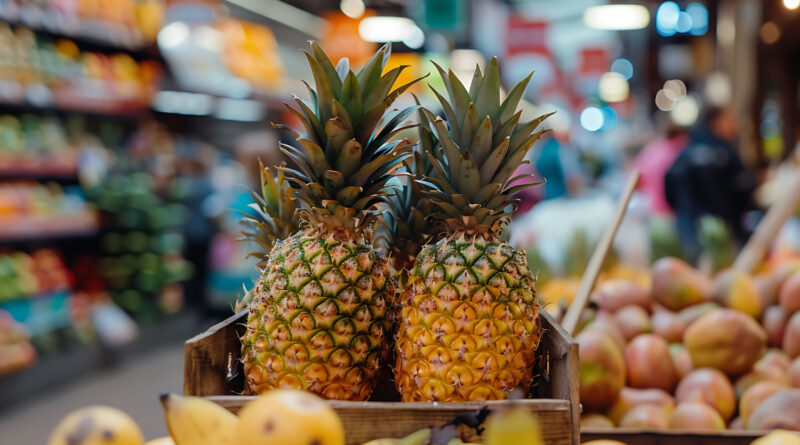Mercadona and its silence in the era of real-time marketing
Masterstroke or missed opportunity?

The supermarket chain and its brand have found themselves at the epicentre of an unexpected viral trend, and their response – or lack thereof – has sparked intense debate in the industry. Strategic silence or missed opportunity? We look at how an unexpected trend impacts a brand and how to manage it in the era of real-time marketing.
If you have used any device with an internet connection in the last 10 days, you probably already know what I'm talking about. The time to flirt in Mercadona has become the trending topic of the moment and, possibly, will end up being one of the topics with the greatest media and social impact this year.
And according to data from the Findasense Intelligence team, in 10 days, Mercadona accumulated more than 419 thousand mentions on social networks alone, achieving a whopping reach of more than 1,916 million . If we add media coverage, the reach and frequency data increase exponentially. Compared to the same study period in 2023, this represents an increase of +1,106% in total mentions and +894% in potential reach on social networks. As you can imagine from the figures, this topic has crossed our borders , finding mentions in other countries such as the United States, Mexico and Colombia.
Given the impact of such a conversation, no one wanted to be left out, and those who did not understand why everyone was talking about the same thing decided to look it up on Google, thus rapidly increasing the number of searches until it reached its peak on August 28.

But how has the supermarket chain managed to have such a huge impact in just a few days? The reality is that the existence of the “flirting hour” in Mercadona is nothing new. Back in 2017, a participant in the First Dates programme mentioned this peculiarity, but it was only a few days ago that this supermarket flirting ritual became the talk of the town.
The performer Vivy Lin shared a video on her TikTok channel in which she joked with a friend while they were shopping at this supermarket, even going so far as to ask a worker a question. The result was more than 1.5 million views of the video, which sparked the reaction of many other brands and content creators who decided to join the trend . Given this situation, we decided to monitor this trend to keep a close eye on it.
On X, formerly Twitter, the conversation sparked a huge controversy . While many users shared memes and joined in on the humor, other users accused Mercadona of having launched a hidden campaign to clean up its image and act as a “smokescreen” for the controversies it has accumulated following complaints from some of its workers. So much so that the net sentiment of the conversation was at -33.59% , meaning that 45.63% of the mentions were negative compared to 12.04% that were positive.
This could be due to the polarization that users of this social network have already become accustomed to. It contrasts with others such as Instagram , where the sentiment rises to +85% positivity, which indicates a much more favorable impact for the brand; whose profile on this network has not stopped growing in number of followers. If before the viralization it rarely increased by more than 100 followers per day, after the boom it has reached a peak of +1,323 followers in less than 24 hours. A similar growth, although on a smaller scale, was observed on Facebook, where it reached up to +206 new followers in a single day.
For her part, Vivy Lin, after the accusations of a covert campaign, firmly stated that it was a spontaneous video and that she did not receive any kind of remuneration for it. For its part, Mercadona has continued posting as usual with a communication focused on the product, and has not made any statements or made any reference to the matter. The question we ask ourselves then is: why?
The most obvious answer is that they have not needed to intervene to benefit from the trend. Brand visibility has skyrocketed in recent days, further strengthening awareness of a supermarket chain that already leads its category, reaching almost 27% market share for the second consecutive year.
The viral success of this trend has generated thousands of posts on social media, where both content creators and other brands have posted about Mercadona, its products and even showing the inside of their supermarkets. A similar impact could only have been achieved with a strong User-Generated Content campaign , which would have meant a significant financial investment that in this case has been saved.
This type of UGC marketing has very significant advantages: it generates much more attention and greater credibility among users, who are increasingly distrustful of brand communications, but share and recommend this type of content as they do not perceive any commercial interest behind it. And all this at zero cost .
In print and digital media alone, it has achieved 3,224 related impacts , and if we add television and radio coverage, we can say that it is a resounding success in terms of coverage in earned media.
As if that were not enough, such a repercussion has created great expectations about what happened in these supermarkets between 7 and 8 pm. So much so that some establishments have had to ask for help from different police forces to manage the avalanche of consumers that has occurred between these hours. A fun event for many that turns into a positive experience around the brand , possibly for some, for the first time.
However, not all that glitters is gold, and not speaking out in such a situation also entails risks . Controlling the narrative is crucial to maintaining your brand image. Not being an active part of this conversation means leaving it in the hands of others, which could distort it and lead to a reputational crisis .
Finally, Mercadona's silence also implies a certain opportunity cost , since it means giving up capitalizing on the moment with Real-Time Marketing activations that would allow the brand identity to be communicated in a fun and credible way .

In conclusion, Mercadona's flirting time has proven to be a viral phenomenon that, without direct intervention by the brand, has generated massive visibility and strengthened its position in the market. However, the strategy of silence adopted by Mercadona, although apparently effective in the short term, underlines the importance of carefully evaluating when and how to intervene in the public conversation in order to protect the brand image and take advantage of strategic opportunities . The success of this trend makes it clear that, in the era of Real-Time Marketing, conversation monitoring, agility and the ability to adapt are key to capitalizing on viral moments and strengthening the relationship with consumers .
Comments
Post a Comment